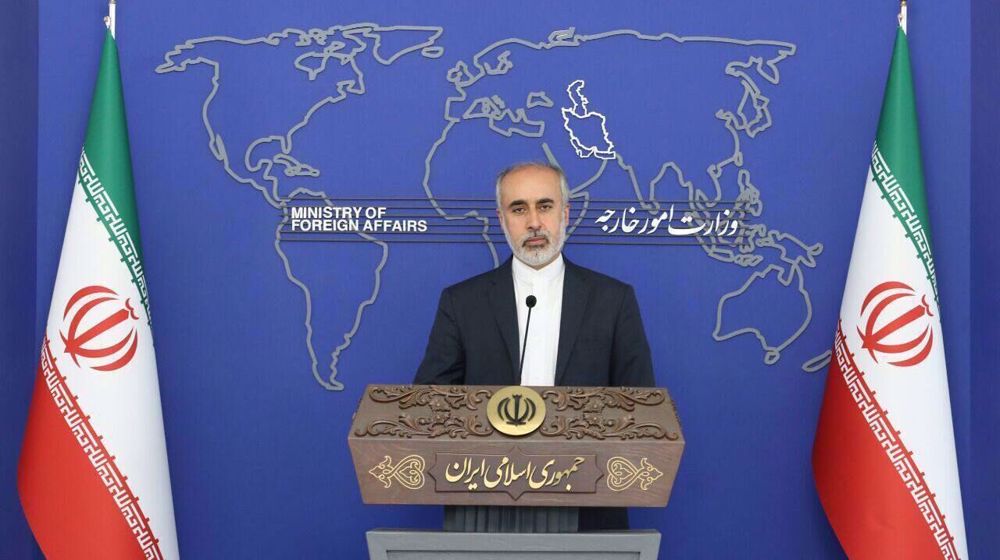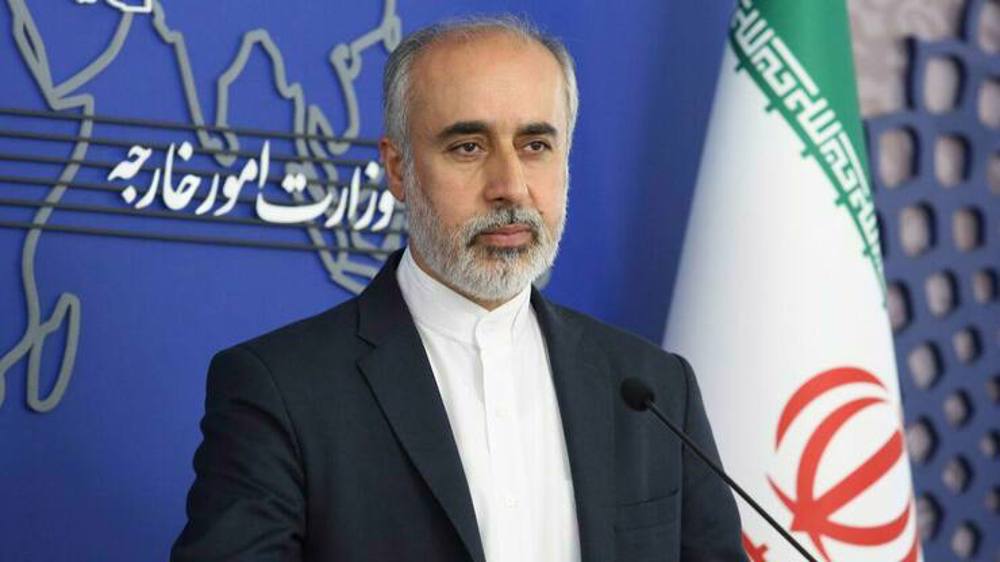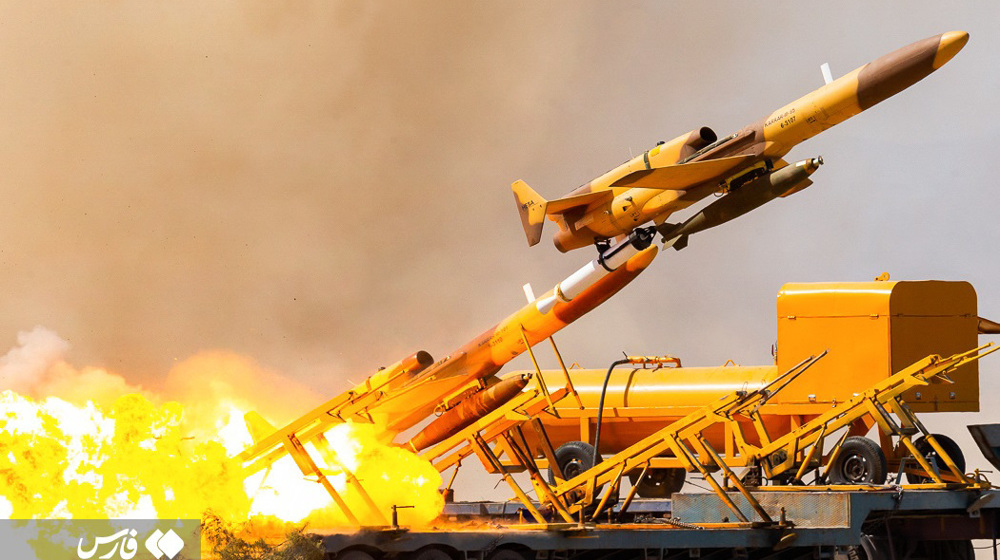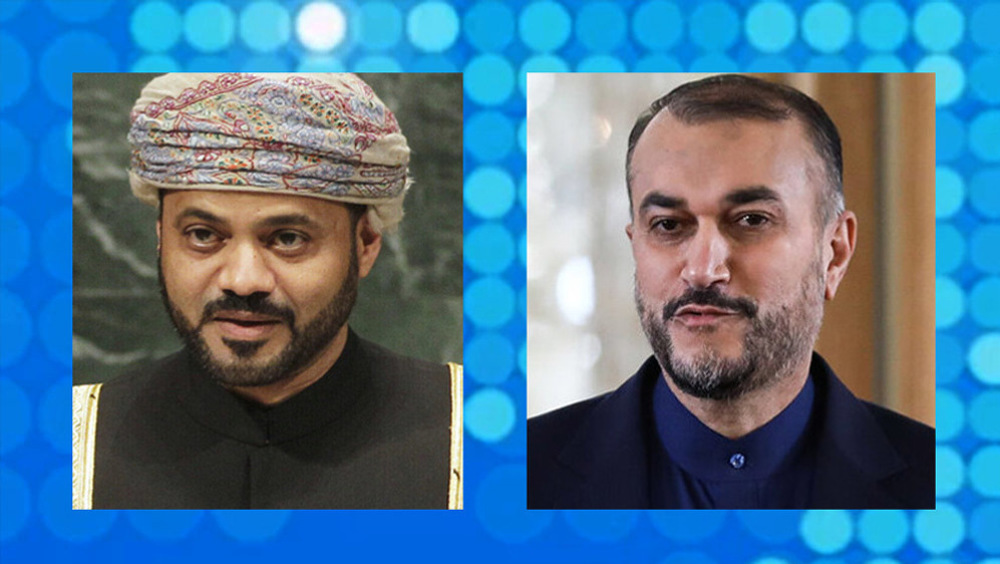Agreement on revival of Iran deal hinges on West political will: Foreign Ministry
Iranian Foreign Ministry's spokesman says an agreement on the revival of the 2015 nuclear deal hinges on the political will of the West.
Speaking at a weekly news conference on Monday, Nasser Kan’ani said Tehran has acted “responsibly” to reach an agreement that secures the country’s national interests.
He said Iran presented its opinion on the US’s response to the European Union’s draft text for the revival of the deal to the EU.
Tehran's response was “logical and constructive,” adding, “If the other side has the political will and acts constructively…, reaching an agreement will be possible.”
The United States unilaterally withdrew from the landmark deal in 2018, and reinstated crippling sanctions under the so-called "maximum pressure" campaign, despite Iran's full compliance with the deal.
Since last year, the Austrian capital has been hosting multiple rounds of talks between the signatories of the deal, officially known as the Joint Comprehensive Plan of Action (JCPOA), in order to examine the prospect of the deal's revival and removal of the illegal economic sanctions.
The negotiations have seen many interruptions due to Washington's obdurate refusal to respect Iran's red lines.
The European Union, which acts as the coordinator in indirect talks between Tehran and Washington, recently came up with a draft proposal to revive the deal. Tehran offered its response, which the bloc described as "reasonable."
The United States took several weeks to offer its response to Iran's comments.
Last week, Tehran offered its opinion on the US’s response and is awaiting Washington’s reply.
Kan’ani said, “The Islamic Republic tried to make the text of the agreement stronger.”
He noted that receiving guarantees from the other side topped the agenda of Iran’s foreign ministry in the Vienna talks.
Tehran has sought verifiable guarantees that the other parties will not again violate their obligations.
‘IAEA must stop its politicized behavior’
The spokesman noted that Iran wants guarantees that no further sanctions will be imposed after they are removed in order to safeguard Tehran's economic interests.
The Islamic Republic also wants guarantees that the International Atomic Energy Agency will refrain from politicizing the country's nuclear program.
He added the closure of the case of safeguard issues is of importance for Iran.
In June, the IAEA’s 35-nation Board of Governors approved an anti-Iran resolution, proposed by the US, Germany, France and Britain.
The US and the EU troika accused Iran of failing to offer transparent responses to the IAEA's questions over nuclear activities at three sites.
Iranian officials have warned that the IAEA has been politically compromised, saying Tehran has fully cooperated with the agency in resolving the outstanding issues.
Kan’ani also touched upon European calls for Tehran help to tackle the continent’s energy crisis, saying that the energy resources-rich Iran has maintained its presence in the energy market despite being subjected to sanctions and is exporting oil to its partners.
He said if the Vienna talks yield an agreement, Tehran can help European countries which have been grappling with an energy crisis since the Russian operation began in Ukraine in February.
'Next to impossible' to rescue patients from Gaza's Kamal Adwan Hospital: Director
VIDEO | Vietnam current prosperity
Report blames gasoil exports for shortage at Iranian power plants
VIDEO | Hind Rajab Foundation names Israeli war criminals vacationing after Gaza genocide
VIDEO | Australians rally for Gaza ahead of Christmas festivities
VIDEO | Attacks on Sana'a
Iran reports further drop in annual inflation rate in December
Israel indicts two settlers over suspected spying for Hezbollah













 This makes it easy to access the Press TV website
This makes it easy to access the Press TV website